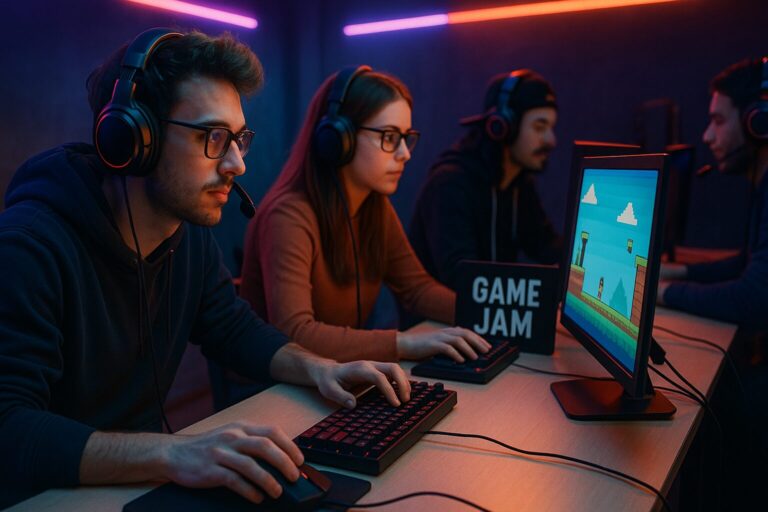
If you want to make games, you need to understand game mechanics. The problem is, most explanations out there sound academic or overly complicated. Let’s fix that.
Here’s what game mechanics really are, why they matter, and how to start thinking about them in plain language.
What Are Game Mechanics?
Game mechanics are the rules and systems that shape how a game works and how players interact with it.
Think of them as the backbone of gameplay. They define what the player can do, how the game responds, and what kind of challenges and choices the player faces.
You press a button and your character jumps? That’s a mechanic. You take damage when you touch an enemy? That’s another mechanic. You collect coins to gain points? Mechanic.
Mechanics are not graphics, sound, or story. They are the actual structure of how the game plays.
Basic Examples
To keep things simple, here are a few common mechanics used in many games:
- Jumping – Press a button to leap into the air
- Health – Take damage until health reaches zero
- Score – Earn points by completing actions
- Lives – Lose a life when you fail, restart if you run out
- Inventory – Pick up and store items
- Timers – You must finish something before time runs out
- Upgrades – Improve abilities or unlock new ones
Most games are built by combining simple mechanics like these in creative ways.
Mechanics vs Features
A feature is something the game has. A mechanic is something the player does or interacts with.
- Feature: A day and night cycle
- Mechanic: Certain enemies are only active at night, so you need to plan your movements
The feature adds depth. The mechanic affects how you play.
Mechanics Drive the Player’s Experience
Good mechanics make the player feel smart, challenged, or satisfied. They create tension, give rewards, or force decisions.
Think about Tetris. There is no story. No characters. Just one core mechanic: rotate and place falling blocks. But it’s still fun, challenging, and addictive.
That’s the power of well-designed mechanics.
Start Small: Build One Core Mechanic
When you make your first game, start with one mechanic and build around it.
Examples:
- A platformer where the only move is jumping
- A puzzle game where you rotate pieces
- A top-down game where you push blocks
Once the core works and feels good, you can add supporting mechanics like scoring or upgrades.
Test Constantly
Mechanics are only good if they feel good. You will not know until you play the game.
Test early. Test often. Tweak things like jump height, movement speed, or attack timing. A simple mechanic can feel amazing or awful depending on the numbers behind it.
Final Thoughts
Understanding game mechanics is about learning how games work, not just how they look. If you can think in terms of cause and effect—if I do this, the game does that—you are already thinking like a designer.
Start small. Keep it simple. Focus on what the player actually does. Build your mechanics one step at a time.
And remember, you do not need a massive system. You just need something that feels good and keeps players engaged.
Keep learning at NoobGame.dev and start turning your ideas into playable games.






